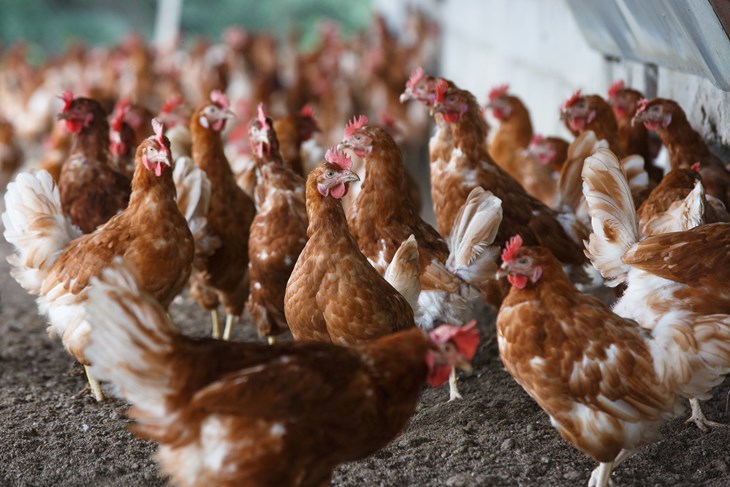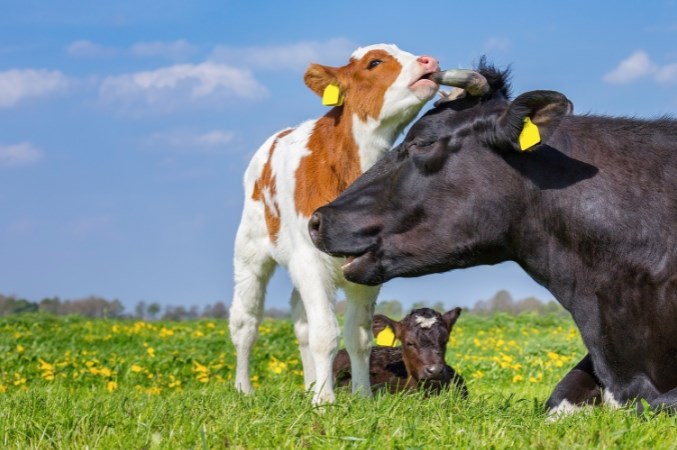11/13/2024
While our mission to end factory farming—the biggest cause of animal suffering on the planet—may feel daunting, the generosity and activism of advocates from every corner of the earth have already helped improve the lives of billions of animals.
When you donate to help farmed animals, you can be assured that you are investing in a powerful global movement with even more groundbreaking success in sight.
The following list of reasons to fuel the ongoing fight is by no means exhaustive—only several affirming advances to spark even more compassion!

1. THE U.S. EGG INDUSTRY IS BECOMING INCREASINGLY CAGE FREE
In cages, hens are unable to move freely or behave in ways that are central to their welfare, such as laying eggs in nests, flapping their wings, dustbathing, scratching, or perching. The hens suffer immensely, as does their health.
Although the majority of eggs on grocery store shelves still come from hens kept in cages, 40% of eggs produced in the United States are now from cage-free hens.
The availability of cage-free eggs continues to grow each year in response to consumer demand and policy change. Ten U.S. states have banned cruel confinement of egg-laying hens in barren cages thanks to legislation supported by Compassion in World Farming and other animal advocacy organizations.
2. TOGETHER, WE’RE SHUTTING DOWN LIVE ANIMAL EXPORTS
After decades of relentless campaigning by Compassion in World Farming and dedicated activists around the globe, Great Britain has banned the live exports of animals for fattening and slaughter.
Other countries have introduced similar laws, such as New Zealand, Australia and Germany. However, the fight is far from over.
The devastatingly brutal trade is still happening around the world, with farmed animals routinely transported by road and sea for days or even weeks. Many suffer overcrowding, exhaustion, hunger, dehydration, stress and fear. Some do not survive the hellish journeys.
With your help, we will outlaw transport cruelty everywhere.

3. FOOD COMPANIES AIM TO FACTORY FARM OCTOPUSES, BUT WE’RE FIGHTING BACK—AND WINNING
Let’s be clear: We should be ending factory farming, not confining new species. And we are sharing this message far and wide, with two major victories won in just the last few months.
In the U.S., two state bills banning octopus farming became law this year. First came Washington State's HB 1153, followed by California’s bill AB-3162, which goes one step further by also banning the sale of farmed octopus products.
Two critical campaigns to stop octopus farming continue:
1. Block Nueva Pescanova's octopus farm plans. The Spanish seafood company intends to confine more than one million octopuses in underwater tanks every year.
2. Champion the U.S. OCTOPUS Act. CIWF supporters have already sent over 8,000 letters to their Senators, asking them to endorse this bill that would ban octopus farming in the U.S. and prohibit imports of farmed octopus meat.

4. OVER 3.1 BILLION ANIMALS ARE SET TO BENEFIT EACH YEAR THANKS TO OUR FOOD BUSINESS WORK
The CIWF Food Business team works closely with food companies to transition to higher welfare production, practices and sourcing policies throughout their supply chain.
In the past year alone, we have secured corporate commitments to improve welfare standards that are set to benefit almost 100 million farmed animals annually. To date, the number of animals set to benefit exceeds 3.1 billion each year.
We could not have accomplished these monumental achievements without the steadfast support of compassionate people like you.
FUEL MORE HOPE FOR FARMED ANIMALS
Make your #GIVINGTUESDAY gift today for twice the impact! Now through December 3, every donation to end factory farming will be matched dollar for dollar.

Make twice the difference for farmed animals
Right now, your #GIVINGTUESDAY gift will be matched dollar for dollar, up to $25,000!
Give now